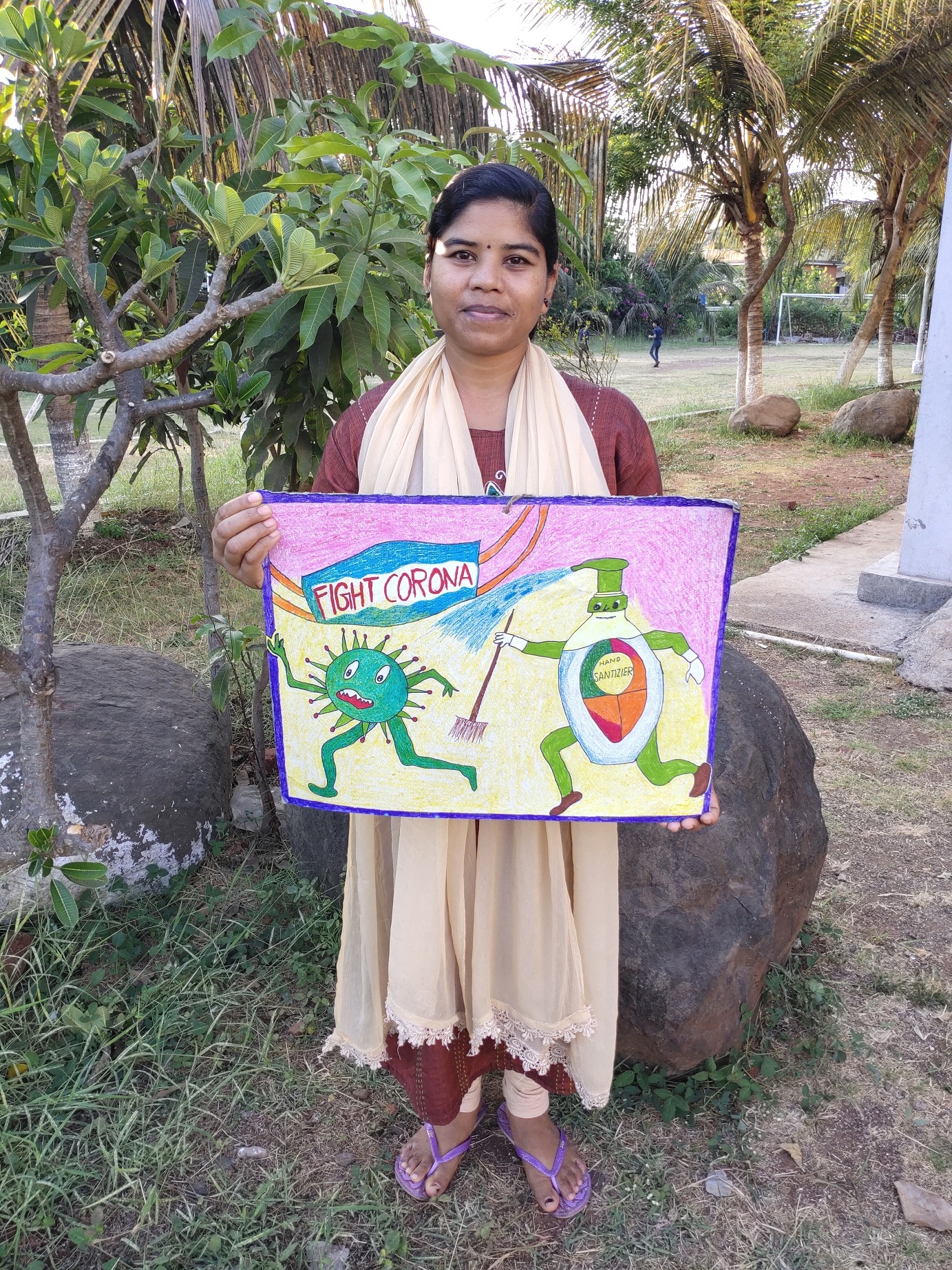Aruni* hasn't had a moment to catch her breath all morning. It's evident. She is panting when she receives my phone call. "Now that they don't have to go to school, they are running behind me all day, 24X7," she said.
Aruni lives in the SOS Children's Village in Raipur in Chattisgarh. She has nine children in her home. None of them she has biologically given birth to, but they all call her 'Mumma'.
When Hermann Gmeiner found the first SOS Village in Austria in 1949, he wanted children orphaned as a result of World War II to find a home and a mother. Seventy-one years later, a pandemic has gripped the world, leaving children with no schools, no playground, no friends to meet. Being a mother, especially during the pandemic, has been anything but easy.
In its unique programme, in each of its "villages" across the country, groups of orphaned or abandoned children are cared for in homes by women who have battled hardships too.
Even after raising 21 children in the last 15 years, 45-year-old Aruni never wants to stop being a mother. Aruni had once married a man she thought she will raise a family with. But when her child only survived a few months, she was asked to leave. She got a divorce and joined the police training service. But she didn't enjoy the 'rough and tough' nature of the job. Soon after, her father found out about the SOS Children's Villages through the local Panchayat. Aruni got herself enrolled for the two-year programme to learn how to be a mother to children who have been orphaned or abandoned. "This is when I started living," she said. "I wanted to be a mother to one child and I got to be to so many loving children," she added.
In India, schools have been shut since the end of March. Trapped in the four walls of the home and a screen for those who can afford it, the lives of children have been disrupted by the Coronavirus pandemic. The learning curve, especially, is at risk.
"I have created a time-table for the children," said 53-year-old Mira*, an SOS mother in Assam. "I wake up at 5:30 am and start my day. I wake them an hour later at 6:30 am. At 8:30 am, I serve them breakfast." Mira then listed out her daily routine, she had memorised it to the minute. The youngest of Mira's children at home is 6 years old.
The non-profit organisation, SOS Children’s Villages of India, that has existed in India since 1964 now operates in 32 locations across 22 States and Union Territories. Under its direct care, Director Programme Development Deepti Ameta said that over 2 core children's lives have been built over the years in the country with the help of their programmes.
An SOS mother raises a generation of children as her own and meets their physical and emotional needs. When a boy turns 14, he is sent to their hostel. Girls usually stay in the home till they turn 18. "All my children call me, they keep checking on my health. No one has forgotten me," said Mira.
The SOS mothers go through a training of two years that includes three months of theoretical training (on education, counselling and child psychology, housekeeping, nutrition and conflict resolution) conducted by social workers and childcare professionals. This is followed by 21 months of practical training working in an SOS Children’s Village as an "SOS Aunt". These SOS mothers receive a room, household allowance and a salary.
In SOS village of Hojai in Assam, there are 263 children, living in homes and hostels. They have been raised by 19 'mothers' and five 'supporting mothers'. "Many children are left abandoned as a result of ethnic violence and natural calamities such as the annual floods, said Paresh Badyakar, Village in-charge of SOS India in Hojai, Assam.
According to UNICEF's 2015 report, there are 140 million orphans globally, including 61 million in Asia. Without adequate parental care, children are often forced into trafficking and early marriages. The children who end up in institutional care (orphanages) may seem to fare better with the food and shelter but in reality, they are deprived of love, identity and visibility.
As schools shut down and children were confined to their homes, the mothers started involving them in daily activities with the support of the organisation. The children learned how to stitch their own masks, they painted around the themes of hygiene and social distancing, they also learned to cook, sow and plant saplings.
An SOS mother shows off her child's painting on Coronavirus theme.
"I have taught all my children how to cook," Mira said. One cannot miss the boastful pride in her voice. "Even the boys. They need to learn to be on their own when they are away from me," she added.
In Jammu and Kashmir's Srinagar, it's not really a village though. The homes to these children and their mothers are strewn around the Valley. Shazia* has her hands full with eight children at home. But the 47-year-old says that children forced to remain at home have been their normal. "Last year, schools were shut too were most of the period. Even before that there are constant curfews. I don't know how they will catch up," she said.
On August 5, 2019, the Centre stripped Jammu and Kashmir of special status and divided it into two Union Territories; a complete lockdown and communications blockade was imposed on the Valley. Schools, too, became a victim.
While Shazia has mothered 12 children since she joined the organisation in 2002, her biggest worry for all of them have been: Education. And like every mother, she has pretty high expectations too. Earlier this year, her 21-year-old 'daughter' Iqra* went away to Chennai to pursue her Bachelor of Science in Audiology and Speech-Language Pathology. But, Shazia is disappointed. "I really wanted her to get into MBBS and become a doctor, but she didn't enough score to pursue," she said. "It is okay. She will make me proud," she said as if to console herself.
But her disappointment doesn't overshadow her bond with Iqra. "I remember the first day she came to me. She was all dirty. I had to give her a good shower," she laughed. Shazia's laughter was filled with fond nostalgia.
Shazia was married off when she was 21. Two years into her marriage, her husband married another woman telling Shazia that she is 'incapable of having a baby of her own'. "Now I have so many children and they love me so much," she said.
*Names have been changed to protect the privacy of the individuals.













